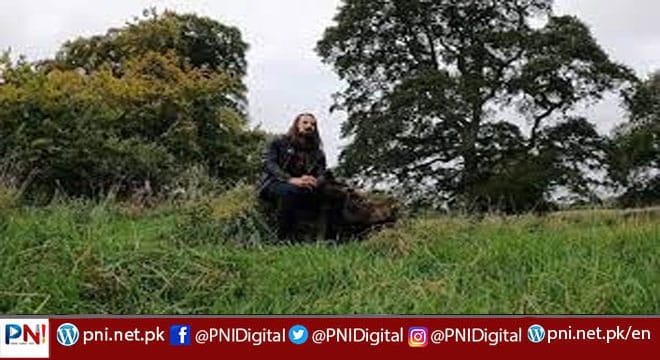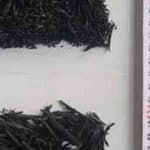Navan, Ireland, Oct 17 (AFP/APP):Randal Plunkett, the 21st Baron of Dunsany, strides out of his Irish castle in a T-shirt bearing the name of death metal band “Cannibal Corpse” in bloody lettering.
In the distance, a russet-coloured stag appears for a moment, before dissolving into the 750 acres (300 hectares) of ancestral estate Plunkett has surrendered to the wilderness — almost half of his lands.
“I felt a sort of sense of duty towards the environment here,” said Plunkett, perched on a decaying tree trunk sprouting a clutch of mushrooms.
“I’m a caretaker of this estate for this generation and the estate is not just the castle, it’s also the land but it’s also the environment,” the aristocrat told AFP, his mane of shoulder-length hair rippling in the breeze.
Eight years ago, death metal fan Plunkett, whose family have presided over Dunsany Castle northwest of Dublin for nine centuries, began his “radical” rewilding project.
The 38-year-old vegan, an unlikely successor to ancestors depicted in sober portraits lining the walls of the grey stone castle, evicted livestock and dismissed lawnmowers to allow nature to take its course.
Now, the results are plain. The ultra-rare pine martin has been spotted. Otter and red deer thrive.
Skies are jammed with birds: buzzards, red kites, peregrine falcons, sparrowhawks, kestrels and snipes.
Plunkett says a woodpecker has been sighted in the area for the first time in a century.
Beyond the castle crenellations, the lawn is transformed into a swirling morass of 23 species of grass, fizzing with insect life.
Plunkett lends a hand here and there — planting 2,500 trees last year was no small feat — but mostly he is hands-off.
“As I watched it, I began to understand what the land was doing,” he said after trudging across a field of knotted undergrowth in a faux leather jacket.
“It became a rewilding project,” he said, two Jack Russell terriers named Beavis and Butt-head gambol around his vegan-friendly Doc Marten boots.
In June the UN said an area the size of China must be rewilded over the next decade.
Stemming land “degradation” is key to keeping temperature rise below two degrees celsius in accordance with the international 2015 Paris Agreement, the UN Environment Programme said.
The UN COP26 summit is taking place in Scotland from October 31, hoping for stronger commitments from world leaders to halt runaway climate change.
Last Saturday, UK campaigners marched on Buckingham Palace with a petition signed by 100,000, calling on the British royal family to commit to rewild their estates before they appear as ambassadors at the Glasgow summit.
“I think we need to do a lot more than we’re doing. I unfortunately think that it’s not going to be done by governments,” said Plunkett pessimistically.
“I started all of this because I wasn’t willing to wait anymore,” he added. “I’m trying to popularise an idea, which I know for a fact will help.”
The benefits of rewilding are manifold. It reverses biodiversity loss, draws carbon down from the atmosphere and can even quash natural disasters.
Some 65 percent of Ireland — known as the “emerald isle” — is agricultural land according to 2018 World Bank figures.
Livestock is responsible for around 14 per cent of global greenhouse gas emissions according to the UN.
For Plunkett, unhitching the perception of the estate as a farming asset has been difficult. He said initially some locals considered him a “moron”.
“They thought that I was destroying perfectly good farmland,” he said. “They thought I was just decadent.”
There have been dark moments too.
Plunkett now considers the rewilded estate an “oasis” where deer hunting is off-limits. He patrols the land at dawn to keep unwelcome poachers at bay.
“There were certain threats, there was abuse, there was vandalism. It became very difficult,” he recalled.
“It became a war and we’re slowly winning it because the truth is this needs to happen for climate change.”
Listing the species that have taken up residence on his estate it is clear Plunkett still has an appetite to fight for his self-described “mini-movement”.
“Every year I’m getting at least one animal back,” he enthused.
“We’re bringing the wild back to Ireland, a place that used to be remembered for being green.”
Follow the PNI Facebook page for the latest news and updates.









